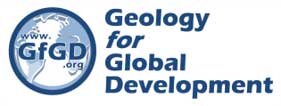GfGD Workshops at the 30th Colloquium of African Geology
GfGD will host two workshops at the Colloquium of African Geology.
Meet the GfGD team at the 30th Colloquium of African Geology in Nairobi, Kenya in September 2025. We will be there throughout the week.
We are delivering a workshop on Education for Sustainable Development in Geoscience Contexts – Tips and Tools (22 September 2025, 8.00-13.00).
This course aims to support those with teaching responsibilities in Higher Education to embed the principles of ‘education for sustainable development’ into their modules and programmes.
Implementation of the UN Sustainable Development Goals (SDGs) requires active engagement by geoscientists and educators have a key role to play in supporting the geoscience profession to have the skills and understanding to engage effectively and ethically in this work.
This course will cover key background information, explore practical tips and tools, and provide a space for participants to share their experiences of ‘education for sustainable development’.
Through this short course, participants should have improved capacity to:
Understand and discuss the term ‘education for sustainable development’ and the themes of environmental stewardship, social responsibility and economic efficiency that it encompasses.
Recognise the drivers and benefits of integrating education for sustainable development into their curricula.
Reflect on current practices, identifying examples of where Education for Sustainable Development could be included.
We are also supporting a workshop on Research for Local to Global Impact - Advancing Sustainability through Science and Partnerships (22 September 2025, 14.00-17.00).
This short course aims to support researchers (including those at an early stage of their career) to generate and monitor impact from their work, in support of the 2030 Agenda for Sustainable Development. This agenda aims to transform societies, giving human beings everywhere dignity and equality, meeting the needs of present and future generations in a responsible manner, and ensuring a healthy planet where environmental protection is valued and prioritised.
Embedded within the 2030 Agenda are 17 Sustainable Development Goals (or SDGs), which emphasise the need for research, innovation, and capacity strengthening. Targets frequently refer to the natural environment, and it is well established that Earth sciences are fundamental to effective implementation.
On successful completion of the short course, participants should have improved capacity to:
Describe how their work can support delivery of specific objectives within global development frameworks and multilateral agreements.
Understand the science-policy interface, and how to operate in this space.
Develop effective, cross-disciplinary and cross-sectoral partnerships to support global sustainability ambitions.
Implement appropriate monitoring and evaluation strategies, to ensure projects are effective and impactful.
This workshop is an output of the impact-focused research project: Improving Household Preparedness in Multi-Hazard Contexts (MH-Prep).

